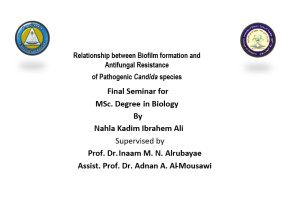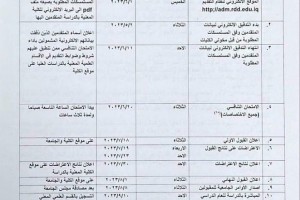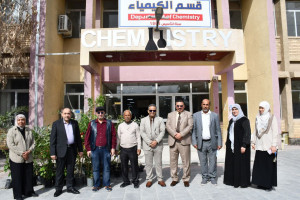
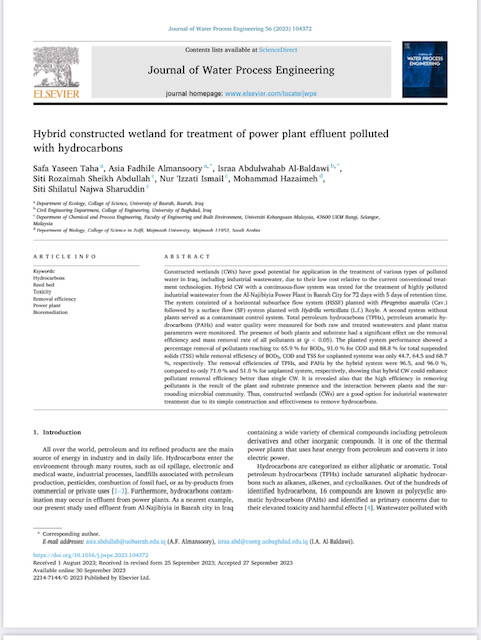
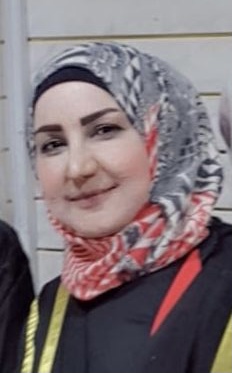
A scientific study in the Department of Ecology at the College of Science at the University of Basra, prepared by Dr. Asia Fadel Abdullah, student Safa Yassin Taha, and a number of researchers, examined the use of a hybrid constructed wetland system to treat industrial flows polluted with hydrocarbons.
The study, which was published in the Journal of Water Process Engineering, classified within Scopus, showed that constructed wetlands have an effective role in treating industrial water from many pollutants, the most important of which are hydrocarbons.
The study included the design of a hybrid system of constructed wetlands planted with two types of plants (reed and hydrilla), which works with a continuous flow system to treat industrial water flowing from the Najibiyah electrical power production station in Basra Governorate.
The results of the study concluded that the use of aquatic plants was successful and effective in treating water from hydrocarbons and other pollutants related to water quality. A comparison was made between a planted system and an unplanted system, and all the results of the planted system indicated high levels of efficiency in the treatment process. On the other hand, the plants demonstrated Its resistance and ability to withstand existing pollutants, as well as its efficiency in the process of decomposing hydrocarbons.



